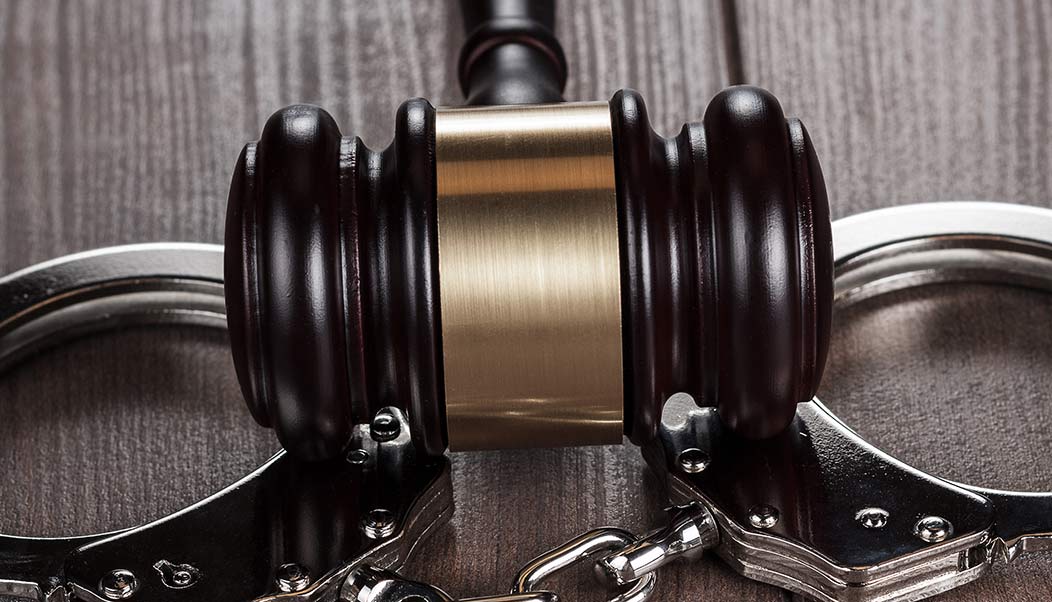There’s nothing quite like knowing the easiest and most efficient ways to do things. It can come off as very impressive to those in your life, and it can even save you a great deal of time, depending on what we’re talking about. Whether we’re talking about mowing lawns or doing an arrest record search, it’s all the same. Saving time on the tasks that you do can help you out in the long run because, after all, even just a few minutes saved adds up over time.
A Brief and Concise Explanation of Arrest Records
Before delving into how you can do your very own arrest record searches in the easiest way possible, it’s important to make sure that everyone reading this article understands exactly what an arrest record is. Any time you have an encounter with the criminal justice system, it’s logged into some kind of record unless it’s something really small like a conversation with a police officer that didn’t need your identification.
There are three main types of records that can come out of these interactions. The first are arrest records, then court records, then, finally, criminal records. These three are important for different reasons entirely, and they cover different types of occurrences. With that in mind, all three of these types of records are important for different reasons.
The first type of record, arrest records, are records of any time someone was arrested. It doesn’t matter if the person in question is tried or charged with any crime for an arrest to be added to the record. In fact, there are many people that have been arrested but were never tried and were simply allowed to walk free after the police figured out what was going on. In many states, the police are allowed to hold you for 48 to 72 hours without charging you with anything, so it’s not uncommon for arrests to appear without any of the other records being touched.
The second type of record, court records, is simply a record of any time the person in question has been to court. It doesn’t matter if the person in question is in for a criminal case or a civil case. It will still appear on their court record. For those who don’t know, a criminal case happens when someone breaks a law, while a civil case happens when someone is suing or being sued. You don’t need to be arrested to appear in court, and just because you go to court doesn’t mean that anything will appear on your criminal record.
The third type of record, criminal records, is a record of all of the crimes someone has been found guilty of in a court of law. This one is unique because something needs to be added to your court record in order for it to get to your criminal record. This is because, in the United States, you are entitled to a trial to prove your guilt before you’re sentenced to punishment for a crime. Because you don’t need to be arrested to go to court, you can have something added to your criminal record without having anything added to your arrest record.
Why are These Records Kept?
Record keeping is nothing new to humans. Many historians theorize that the reason why language was created at all was to convey information, and record-keeping is just the logical conclusion of that. The first records ever kept were actually created by the ancient Egyptians, which means that the act of recordkeeping is older than Rome by about 6000 years.
The reason for all of these records? Well, the simplest reason is that it makes it easier for the government to keep track of what it’s doing. For instance, tax records allow government officials to know who has and has not paid their taxes for any given year. So why do arrest records exist? Quite simply, so the government can look back on who has been arrested and why they were arrested.

With all of the things that the government does, it can be easy for anyone to lose track of it, especially if you expect police officers to be able to tell you offhand all of the people they arrested and why. Most people have trouble recalling what they had for lunch six months ago, let alone why someone was arrested. Police can arrest upwards of 11,000 people a year depending on what city they’re in, so details of any individual arrest can become a little foggy, to say the least.
When the government needs to look back on arrests, it’s much easier to make the police officers fill out paperwork for each arrest than to have to rely on them having a good memory, which not every police officer has. It also makes things simpler if statistics need to be brought up in meetings or even if a third party needs to audit a police station. Having everything in records means that even if the arresting officer dies, the information can still be retained, possibly for thousands of years to come.
How to Find Arrest Records: The Easy Way and the Hard Way
Arrest records are far from the hardest things to find in the world. It’s a lot less like trying to hunt down the rare and exquisite violet webcap mushroom and more like trying to find those cool white mushrooms growing after it rains. While we’re on the mushroom metaphor, please don’t go eating random mushrooms you find. It’s incredibly dangerous to do so because there are so many mushrooms that look so similar, and even people with doctorates in mycology make mistakes.
Back on the subject of finding arrest records, there are really two main ways that people go about finding this information. The most obvious method isn’t the best, but we should look at it so you can know exactly why it’s not the best way to go about getting arrest records. This method also happens to be the first that usually comes to mind when considering looking into someone’s arrest records, which makes it even more important to look at so we can be sure you understand the best way to go about this.
The first method is, as you probably guessed, using the records provided by law enforcement. While most information is better when it comes directly from the source, arrest records are actually not one of those things. The amount of information provided depends on the county you’re looking in, and it can range from none to all of the information you need. That sounds fine if you happen to only need to look in a county that does provide this information, but the problem becomes more apparent when you need to look into counties that don’t.
These databases all exist independently of each other, which means that you’ll need to check every county website individually to get all of the information you’re looking for. The lack of consistency becomes incredibly clear when you need to do this. Going about your arrest record search this way could lead you to not having nearly as much information as you were looking to get.
The better way to get this information is a lot easier and more accurate. All you need to do is find a good personal background check service. You can do this with a quick and easy good search. Once you find a good one, just enter in the required information, and you’ll receive a lot more than just arrest records. Criminal records, court records, and even driving records are also commonly found this way. Sometimes a lot more information than that can even be found, making this an incredibly powerful tool for anyone trying to do a quick arrest record search.
All of the information provided comes from public record databases all over the country. The systems used by these personal background check services can pull all of this information and pass it along to you instantly, so the only thing that really influences how quickly you get your search results is your internet speed.
Don’t Let Your Arrest Record Search be a Drag
Finding arrest records doesn’t have to be hard. You just need to know what tools you have at your disposal. There are more tools to help you find arrest records now than there have ever been, so it’s a good idea to take advantage of them to make sure that your arrest record search doesn’t turn into a massive headache. Whether you’re trying to find this information about a loved one because you want to make sure that they aren’t getting into too much trouble or you want to look into a neighbor’s history because you have a bad feeling about them, you deserve to get that information easily and quickly so you can put your worried mind at ease.
***SpyFly provides consumers affordable, immediate access to public record information. Federal laws prohibit businesses from using SpyFly’s service to make decisions about employment, insurance, consumer credit, tenant screening, or for any other purpose subject to the Fair Credit Reporting Act, 15 USC 1681 et seq.**


